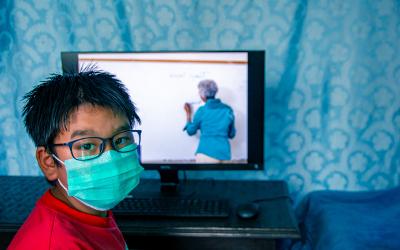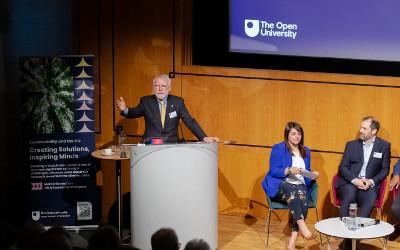New study on the impact of COVID-19 on access to higher education

A new study into the impact of COVID-19 on access to higher education in low-and middle-income countries (LMICs) has received funding from the OU Rapid Response scheme.
Led by Agnes Kukulska-Hulme, Professor of Learning Technology & Communication in the OU’s Institute of Educational Technology, the project: Impact of COVID-19 on Equitable Access to Quality Education in the Context of Higher Education has received £10,500 to advance our understanding of how COVID-19 is affecting equitable and inclusive higher education in LMICs and it will provide valuable insights into emerging practices in terms of strategies to safeguard access to education and effective interpersonal systems of support.
Professor Kukulska-Hulme said:
“The Covid-19 pandemic has created a new normal where students have been forced to receive education from home as their health and safety are a prime concern. However, learning from home is challenging for learners especially to those who do not have access to technology. Indeed, the pandemic has shined a spotlight on inequality, particularly in low-and middle-income countries (LMICs) where there is a digital divide among citizens.”
The study will be carried out among undergraduate students and higher education teachers, with samples taking part in online interviews so that insights can be gathered into the issues around equity and inclusion.
The findings, which should be available in June, will offer strategies for promoting students’ equitable access to quality education to mitigate the attainment gap.
Dr Saraswati Dawadi, Research Associate in the OU’s Faculty of Wellbeing, Education and Language Studies added:
“In Nepal, the existing system of education and the uneven distribution of its resources have often been blamed for the widening gap between the haves and have-nots.
In the time of COVID-19, the digital divide and uneven access to e-learning and e-resources will widen the gap even further and worsen inequalities between advantaged and disadvantaged students. In this context, we hope that the findings drawn from this study will provide insights into students’ and their teachers’ experiences of getting involved in online education during the pandemic. The study will draw pedagogical and research implications for the use of Information and Communications Technology (ICT) in education in challenging circumstances.”
Find out more about what the OU is doing to support the response to Coronavirus
Quarterly Review of Research
Read our Quarterly Review of Research to learn about our latest quality academic output.

Contact our news team
For all out of hours enquiries, please telephone +44 (0)7901 515891
